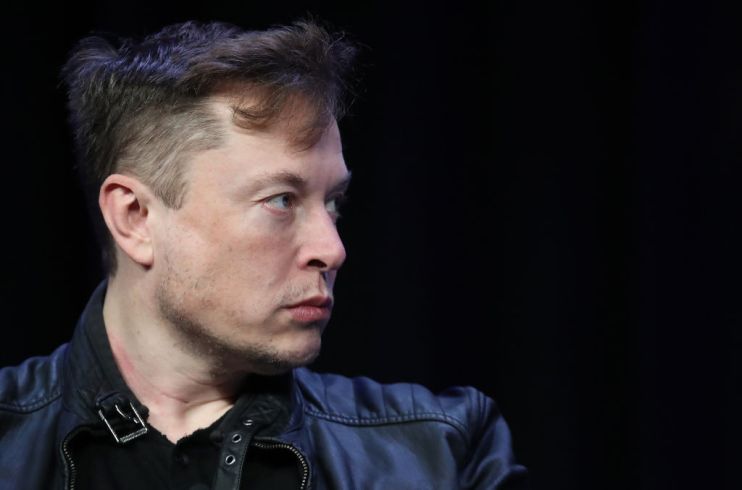Five things we learned from Elon Musk’s interview with the BBC

Elon Musk plans to revoke a disputed “government funded media” label Twitter attributed to the BBC, claims advertisers are returning to the platform and admitted that he sometimes sleeps in the office.
The billionaire chief executive — who is also at the head of electric car maker, Tesla, and spacecraft manufacturer, SpaceX — made the revelations in a wide-ranging interview with the BBC this morning.
Musk bought Twitter for $44 billion in October after a tumultuous acquisition process during which he tried to back out of the deal.
On the acquisition, he told the BBC: “It’s not been boring. It has been quite a rollercoaster.”
The interview, which was broadcast live from Twitter HQ in San Francisco, came after Twitter and the BBC clashed over how Twitter labelled the broadcaster.
Here are five things we learned from the interview.
1) The BBC’s Twitter tag will be changed
Musk said Twitter will change the BBC’s “government-funded media” tag after the broadcaster complained.
He said the BBC is “not thrilled” with the label, and added that it would be changed to reflect that the broadcaster is publicly-funded, which is “not too objectionable.”
The BBC reached out to Twitter after the tag was added to its profile last week. The tag links to a separate web page, which does not define “government-funded media,” but describes state-affiliated media as “outlets where the state exercises control over editorial content through financial resources.”
The BBC is funded through a licence fee paid by British households, which made up 71 per cent of its total income in 2022, the broadcaster said. “The BBC is, and always has been, independent,” it said.
Musk said the tag would also be removed from US media outlet NPR.
“Our goal is simply to be as truthful and accurate as possible,” he said.
The BBC was contacted for further comment.
2) Advertisers have returned to the platform, Musk claims
Musk said Twitter is “roughly” breaking-even and advertisers are slowly returning to the platform.
A number of high profile companies and advertisers fled the platform after Musk’s takeover, amid concern over how misinformation and hate speech would be policed on the platform.
In less than one month, Twitter lost half of its top advertisers, which collectively accounted for almost $2 billion in spending since 2020, according to research from the non-profit media watchdog, Media Matters.
The company reported a drop of 40 per cent year on year in revenue and adjusted earnings for the month of December after advertisers ditched the platform, the Wall Street Journal reported last month.
Musk previously warned the company could go bankrupt.
He told the BBC, however, that Twitter was heading towards being “cash flow positive.”
3) Legacy blue ticks will be removed by next week
Musk also confirmed that legacy-verified blue ticks would be removed from the platform by the end of next week.
The billionaire entrepreneur previously said legacy ticks would be removed from users who do not pay a monthly subscription for Twitter Blue on April 1, but Twitter has been slow to make the changes.
The New York Times, which has 55 million followers, lost its blue tick after it said it would not pay to keep its verification.
A subscription to Twitter Blue costs $8 per month for individuals and $1,000 per month for organisations.
4) Musk said he would sell Twitter if he found a buyer committed to the “truth”
Musk said he would not sell the platform for the $44 billion he paid for it unless he found a buyer who would “pursue the truth.”
He previously tried to duck out of the deal to acquire the social media company after warning that Twitter did not provide him with sufficient information on the number of bots and spam accounts on the platform.
He admitted that he went through with the deal because a judge would have forced him to, according to the BBC.
Asked whether he regretted his decision, the billionaire businessman told the BBC that the “pain level has been extremely high, this hasn’t been some kind of party”.
5) Not all firings happened in person
Musk has also come under fire for cutting Twitter’s 7,500-strong workforce amid a drop in revenue.
He told the BBC that his trimming staff from just under 8,000 to 1,500 had not been easy. He also admitted that not all firings had happened face-to-face.
“It’s not possible to talk with that many people face-to-face,” he said.